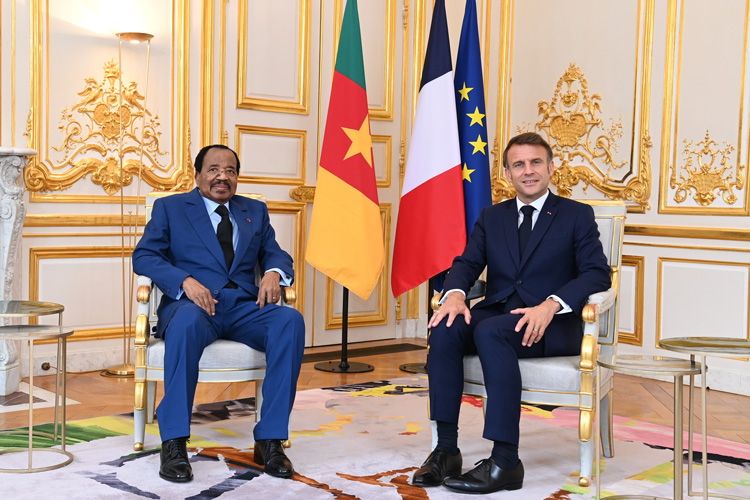French President Emmanuel Macron has for the first time admitted that his country waged a “war” against in independence in Cameroon and used “repressive violence” against nationalists who wanted independence in the late 1950s.
In a letter sent last month to Cameroon’s President, Paul Biya, published on Tuesday, August 12, by the French Presidency, Macron recognised France’s responsibility for the merciless campaigns that crushed Cameroonian nationalist movements, including the UPC –which later radicalised into what is today known as “marquizards”.
“The historians of the commission made it very clear that there was a war in Cameroon, during which the colonial authorities and the French army carried out repressive violence of several kinds in certain parts of the country in a war that continued after 1960 when France supported the actions carried out by the independent Cameroon authorities,” said Macron in the letter.
He stated that it was “incumbent on me today to accept France’s role and responsibilities of these events”.
France and Cameroon still maintain a strong connection even after this brutal past. Macron believes the frank acknowledgement “will allow us to continue building the future together, to strengthen the close relationship that binds the two nations, with its human ties between our civil societies and our youth”.
The acknowledgement comes eight months after a commission of 14 Cameroonian and French historians, set up by Macron and Biya during their historic meeting in Yaounde in 2022, submitted a report to both leaders detailing France’s role in crushing pre- and post-independence nationalist movements in Cameroon.
The 1,000-page report, which featured interviews and testimonies from witnesses of French brutality between 1945 and 1971, highlighted the inhumane and brutal treatment of Cameroonians who clamoured for autonomy from France.
In collaboration with President Ahmadou Ahidjo’s government, the French arrested and executed several nationalists who were members of the radical UPC party –among them Reuben Um Nyobe, Felix Roland Moumie and Ernest Ouandie.
Tens of thousands of people were killed during the repressive violence and hundreds of thousands of others displaced, according to findings of the commission report. This violence continued even after Cameroon gained independence in 1960.
Macron’s acknowledgement of France’s role is seen as a major step towards confronting the country’s controversial colonial legacy in Africa, where it is accused of brutally suppressing pro-independence movements, not only in Cameroon, but also in countries like Algeria.
However, Macron’s letter to Biya fell short of stating whether France would be making reparations to Cameroon or to families of victims of its repression.
While France admits responsibility for the past, the country is also being scrutinised for maintaining close ties with President Paul Biya’s regime, which has been repeatedly accused on human rights abuses, opposition crackdown and press censorship during its 42-year-rule.
By Emilien Ngeka & Fina Fonge (UB Journalism Students on Internship)

